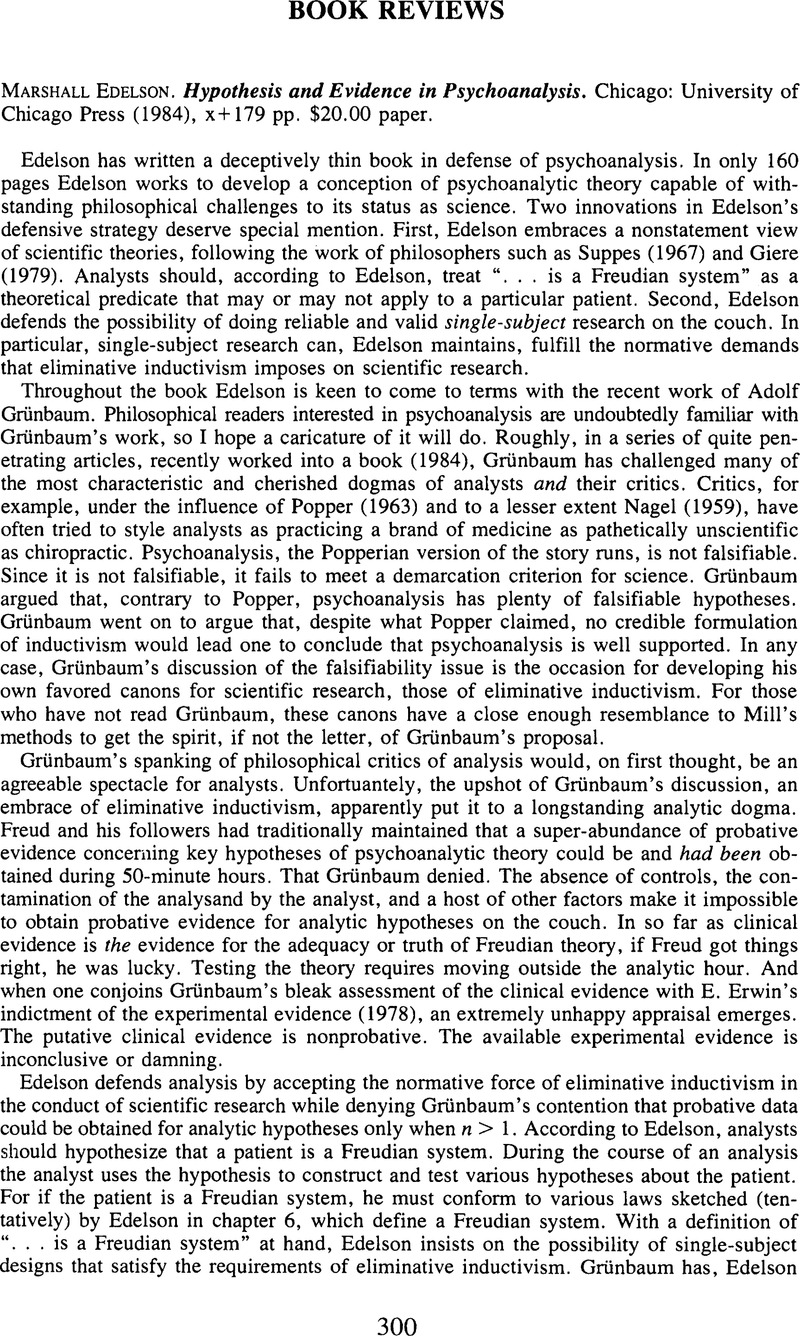No CrossRef data available.
Article contents
Marshall Edelson Hypothesis and Evidence in Psychoanalysis. Chicago: University of Chicago Press (1984), x+179 pp. $20.00 paper.
Published online by Cambridge University Press: 01 April 2022
Abstract
An abstract is not available for this content so a preview has been provided. Please use the Get access link above for information on how to access this content.

- Type
- Book Reviews
- Information
- Copyright
- Copyright © The Philosophy of Science Association 1986
References
Giere, R. (1979), Understanding Scientific Reasoning. New York: Holt, Rinehart & Winston.Google Scholar
Grünbaum, A. (1984), The Foundations of Psychoanalysis. Berkeley and Los Angeles: University of California Press.Google Scholar
Luborsky, L., and Mintz, J. (1974), “What Sets off Momentary Forgetting During a Psychoanalysis?”, Psychoanalysis and Contemporary Science 3: 233–68.Google Scholar
Martin, M. (1964), “Mr. Farrell and the Refutability of Psychoanalysis”, Inquiry 7: 80–98.CrossRefGoogle Scholar
Nagel, E. (1959), “Methodological Issues in Psychoanalytic Theory”, in Psychoanalysis, Scientific Method, and Philosophy, Hook, S. (ed.), New York: New York University Press.Google Scholar
Suppes, P. (1967), “What is a Scientific Theory”, in Philosophy of Science Today, Morgenbesser, S. (ed.), New York: Basic Books.Google Scholar
Wallerstein, R. (1984), “Review of Farrell's The Standing of Psychoanalysis”, The Standing of Psychoanalysis 18: 534–41.Google Scholar


